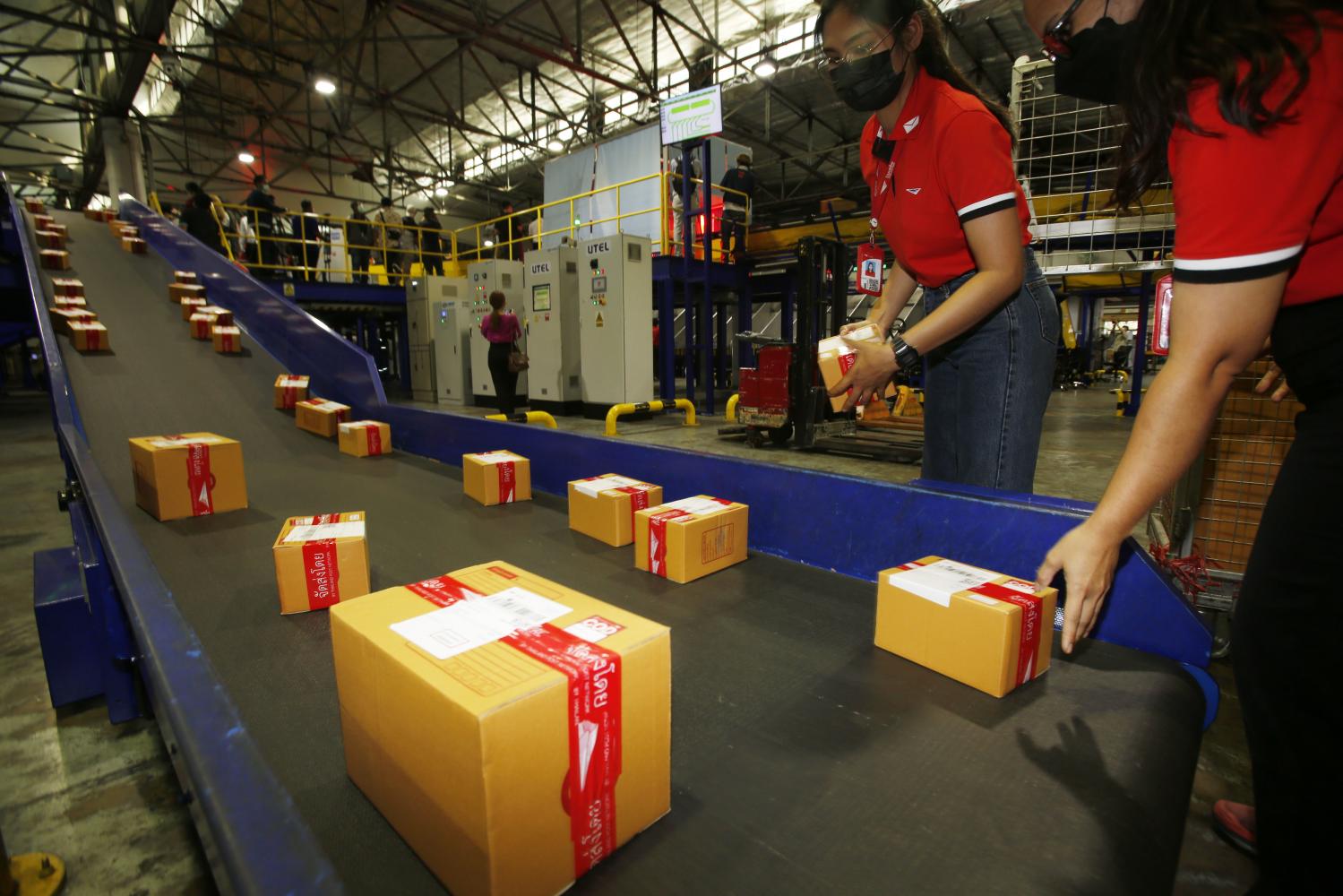
Express delivery business in the country should be properly regulated to ward off predatory pricing and ensure the good quality of services by operators, according to Thailand Post, a state postal service enterprise.
The call was made as several foreign delivery service platforms are ramping up efforts to boost their market share through below-cost pricing, which is heaping pressure on Thailand Post, which provides postal services while having to serve the public interest.
Dhanant Subhadrabandhu, chief executive of Thailand Post, said several foreign express delivery operators are operating in the country by using the below-cost strategy, which distorts market competition.
The Thai market is only one of their supply chains in their logistics and e-commerce business, he said, adding the major shareholders of these global logistics players support accelerated efforts to boost their market share in Thailand regardless of huge losses.
"Without proper regulations governing the express delivery business, the domestic market could be at extreme risk of facing monopoly scheme, which could adversely affect consumers," said Mr Dhanant.
If the state allows price-cutting operators to dominate the market with very low delivery fees, it would take a toll on the country's logistics ecosystem, he said.
He said fierce competition in the segment is hitting the performance of Thailand Post, which faced its first net losses in its operations last year of 1.6 billion baht, including more than 500 million baht allocated for its early retirement programme in 2021.
In recent years, the company has seen its revenue decline 10% on average per year.
More importantly, an increase in fuel prices has pushed up the firm's fuel costs by 30%.
"To be fair, Thailand Post is the only operator in the country that provides business-to-customer delivery nationwide, including traditional mail services as a basic logistics infrastructure," said Mr Dhanant.
It is also the only courier regulated by the Postal Commission while other operators are running business freely without oversight, he said.
Thailand Post also provides basic support for the public, such as delivering medical supplies nationwide during the pandemic and distributing fruits and products from local farmers to consumers in line with the government's policies.
It is hard to speculate how long the company's coffers could be used to compete with foreign cost-cutting operators which have strong financial backing from giant companies.
Parcel delivery service contributes 40% of Thailand Post's total revenue, followed by mail at 30%, international courier services at 20% and financial services at 10%.
Thailand Post said it still retains the biggest market share of overall mail and parcel delivery business at 45%, down from more than 50% two years ago.
Meanwhile, Kerry is the biggest player in logistics services in the country.
Related government agencies should be aware that courier services are now marred with a distortion of competition while regulations are needed to shape up the ecosystem to support healthy competition, said Mr Dhanant.
Regulations can also help ensure operators take care of service quality rather than pricing strategy, he noted.
"Healthy competition is not only meant to support Thailand Post, but ensure a proper price gap between basic services and express delivery. The gap is now too narrow, driven by below-cost pricing," said Mr Dhanant.
Thailand Post, which has been operating for 136 years, is now adjusting its services and management as part of its digital transformation with its mission to become Post Digital, he added.
According to Mr Dhanant, the company, which has 40,000 staff, needs to be more agile and adopt a new service mindset to generate new revenue streams.
The company's logistics solutions arm ThailandPost Distribution aims to be listed on the stock market within the next two years.







